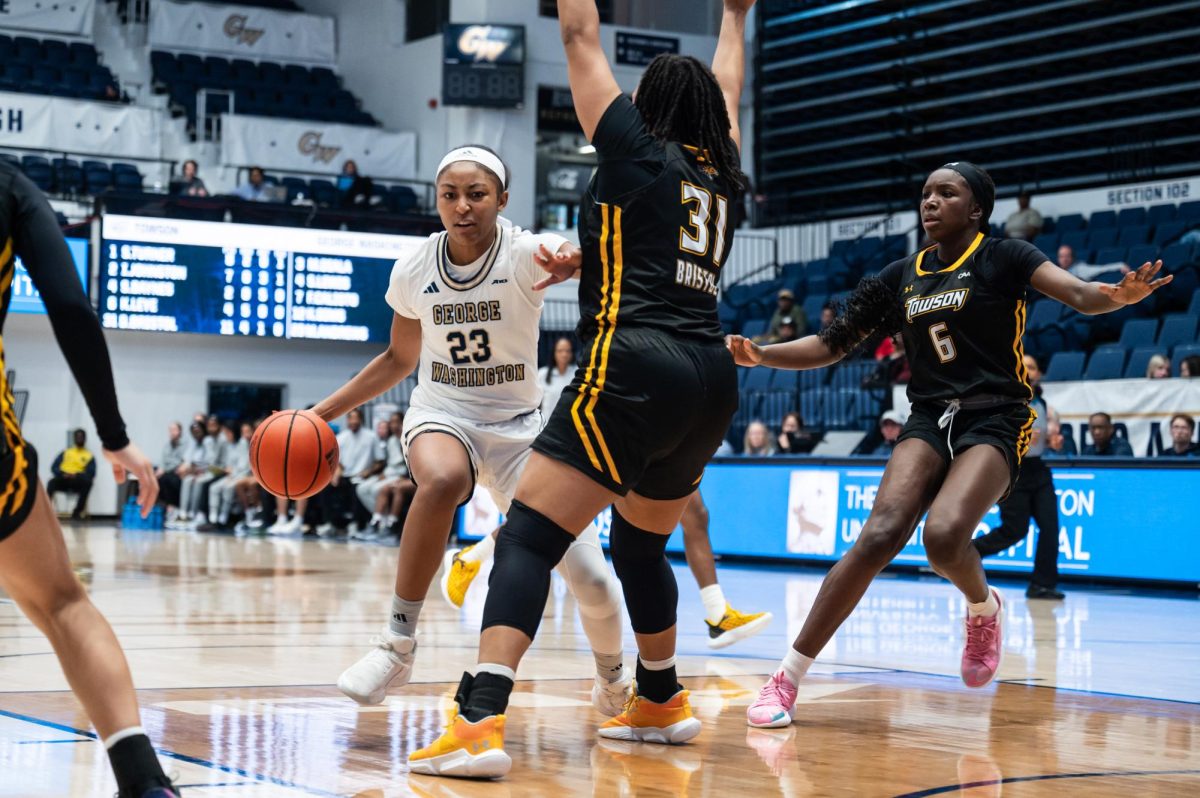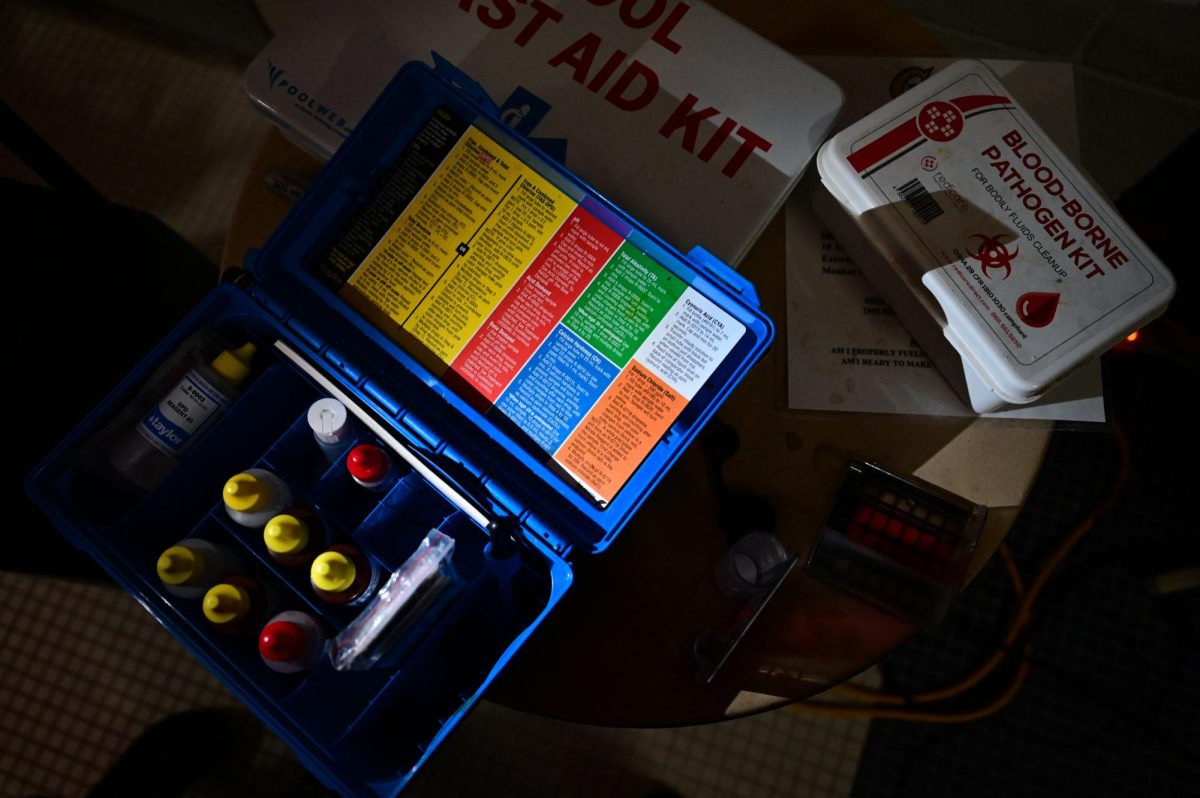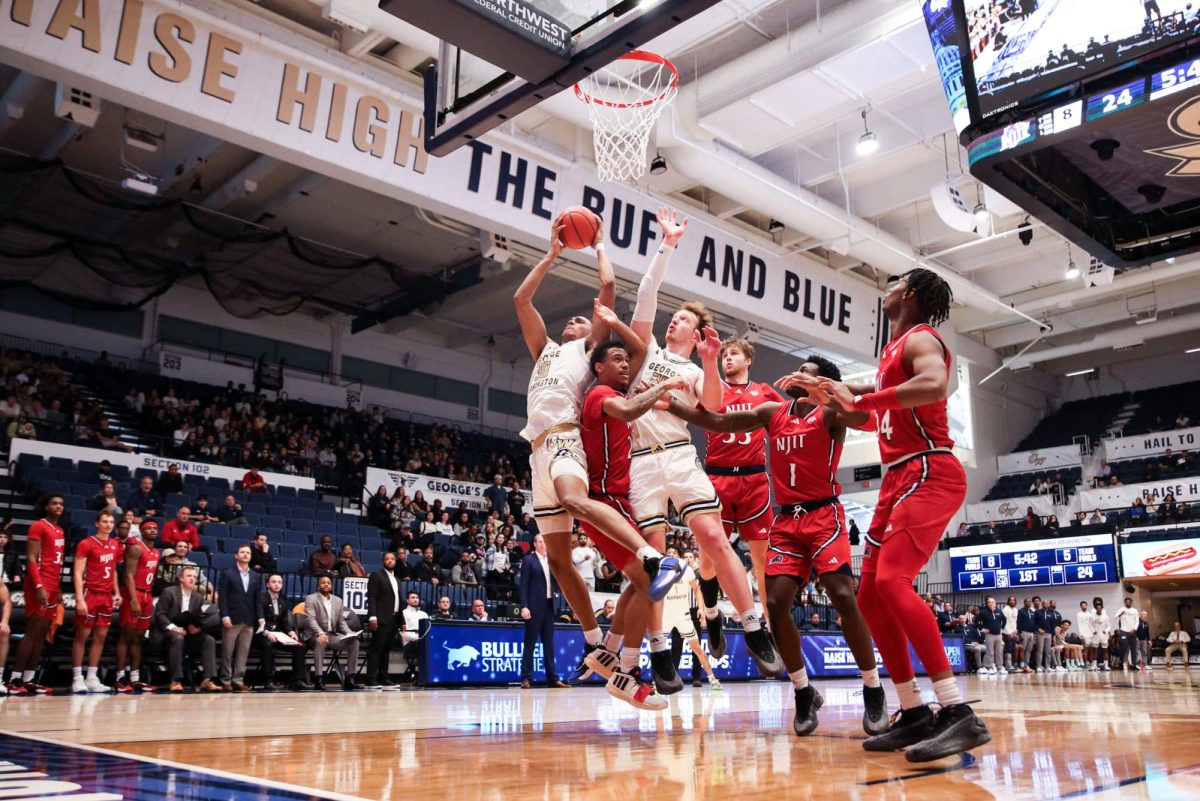In the fall of 1985, John Flaherty came to GW and saw an opportunity. By playing baseball for the Colonials, he thought, like so many other student-athletes, he could trade his athletic talent for a college degree. What he got, in addition to his degree, was a career in Major League Baseball.
Currently in his 12th season, Flaherty is the backup catcher for the New York Yankees and the only GW baseball alumnus playing in the major leagues.
With his team holding the second best record in baseball through Monday, Flaherty will have a chance to become the first GW alumnus to win the World Series as a player this fall.
“My role is to give (starting catcher) Jorge Posada a day off, and when I do that, I hope that we don’t miss a beat,” Flaherty said in a telephone conversation with The Hatchet last week. “By that I mean helping the pitcher get a quality start and most importantly (getting) a win. If I can do that and give Jorge a full day off (when) he doesn’t even have to think about pinch-hitting late in the game, I view it as a success.”
Playing primarily in day games following a night game, Flaherty has played in 35 games this season, hitting .245 with four home runs. Born in New York and raised 25 minutes from Yankee Stadium in Montvale, N.J., Flaherty is now in the process of making New York his permanent residence with his wife, Allyn, and two children.
But the road home was a long one.
Flaherty was drafted in 1988 by the Yankees’ perennial rival, the Boston Red Sox, after his junior year at GW. After spending a year in the minor leagues, the catcher returned to Foggy Bottom to finish earning his bachelor’s degree in speech communication while working as an assistant in the University’s Sports Information office. Finally, in 1992, he made his professional debut with the Red Sox.
“Coming up with the Red Sox, you learn to develop a dislike for the Yankees, obviously,” Flaherty said. “It was different this year going to Fenway and being in the other dugout as a Yankee. It’s a tremendous rivalry, and one that I think I can appreciate more than anybody else, being on both sides of it.”
After a three-year stint with the Detroit Tigers, Flaherty had his best season in 1996 as the starting catcher for the San Diego Padres. His 27-game hitting streak that year was the second longest in major league history by a catcher.
Then, after the 1997 season, Flaherty was traded on the night of the expansion draft to the Tampa Bay Devil Rays, becoming one of the original members of the newly formed team.
Although the franchise has struggled since its creation in both winning games and drawing fans, Flaherty speaks highly of his time in Tampa, where he owned a home before coming to the Yankees.
“I was looking forward to being part of something that started from the ground and developing that into a championship team,” he said. “I signed a three-year contract extension after the first two years thinking that we would make progress and move toward the playoffs, and for a lot of different reasons that didn’t happen. But there’s something to be said about being a part of something and building it up from the ground.”
Flaherty eventually lost patience in building a team in Tampa, and when he got a call from “The House That Ruth Built,” he signed with the Yankees as a free agent. When he first entered the team’s locker room, he immediately saw that the differences between his new home and his old one could not be more drastic.
“When you play against them for five years and see all the success they’ve had on the field, you’re kind of in awe when you first walk into that clubhouse,” he said. “But the great thing about here is that the players we have – the Jeters, the Bernie Williams and Giambis – guys like that, there are no egos once you walk into that clubhouse, and that’s been a breath of fresh air for me.”
Flaherty said another refreshing part of playing for the Yankees is being in a pennant race and having something to compete for in September.
“The thing about Tampa is, when you get to September, you need to find ways to motivate yourself,” he said. “You would look forward to playing the Yankees or the Red Sox because you knew you would have something to say about who went to the playoffs. Now, being on the other side of it, it’s nice to have a lead going into the last 20 games and being able to dictate your own future.”
If winning the World Series next month is part of that future, Flaherty, 35, said he would strongly consider retiring.
“When you get to be my age, especially as a catcher, it catches up to you,” he said. “After winning the World Series, there probably wouldn’t be much else to play for.”
But regardless of how long he remains in baseball, Flaherty said he wants to continue his involvement with the GW baseball program indefinitely.
“It’s something that I would like to stay a part of for a long time,” he said. “Even today, on the way to the field, I talked to two guys that I played with … so my relationships from the three years that I played ball there are still as strong as ever. I hope some of the kids that are playing there now can come out of it with some of the relationships and experiences that I developed while I was there.”
GW head baseball coach Tom Walter said Flaherty, who was inducted into the GW Athletics Hall of Fame in 1997, has been a major supporter of the team throughout his career.
“John’s been as big of a supporter as we’ve had during my time here, not only with financial contributions but in making appearances to speak with our team and showing up at a few games,” Walter said. “So not only is he our biggest financial contributor, but he also has a vested interest in our program.”
Walter also said Flaherty’s success has been helpful both in recruiting and in giving hope to current GW baseball players.
“In our recruiting spiel, we talk a lot about the people we have playing in professional baseball, not only him but the other guys we have in the minors,” he said. “So it’s a big selling point for us.”
Now, as his career winds down and he looks ahead to the later part of his life, Flaherty said he has grown more appreciative of his GW education.
“I’m very comfortable with what I’ve done in my career and (am) looking forward to a new career after baseball,” he said. “That’s one of the great things about having a GW degree. I’m looking forward to the second part of my life, where maybe I can do something else and be successful with that as well.”






